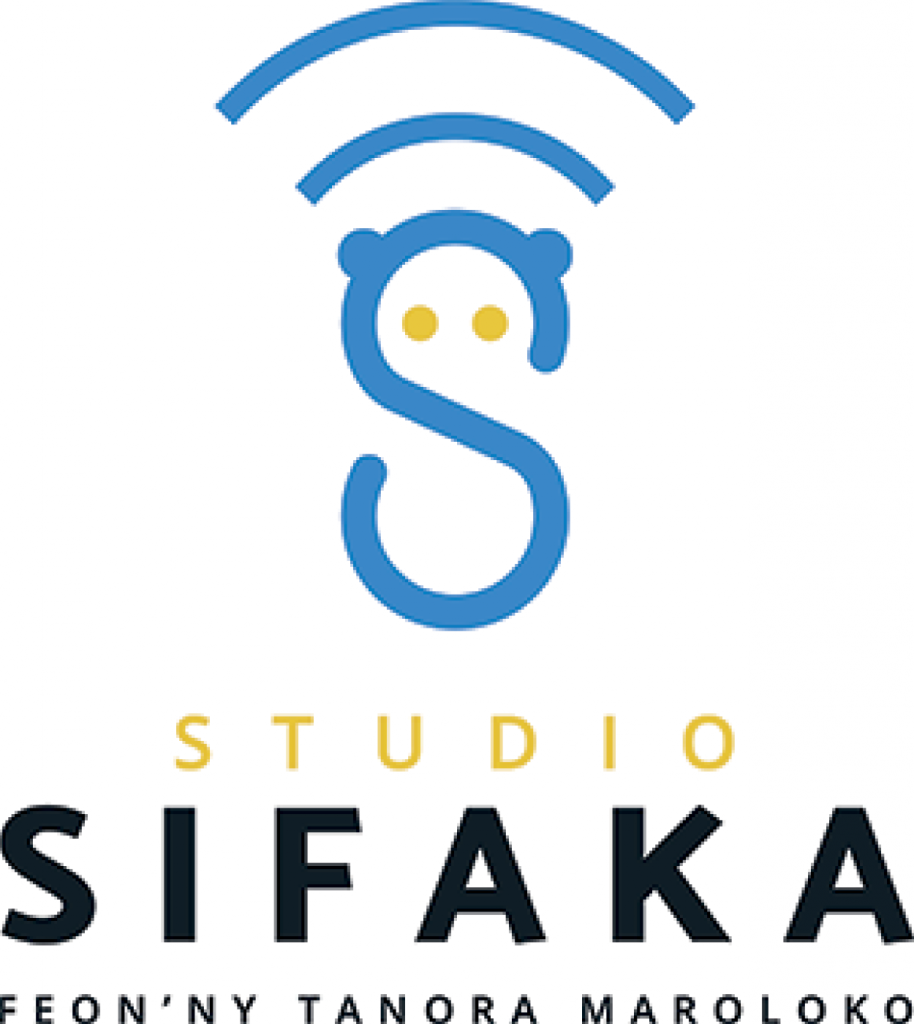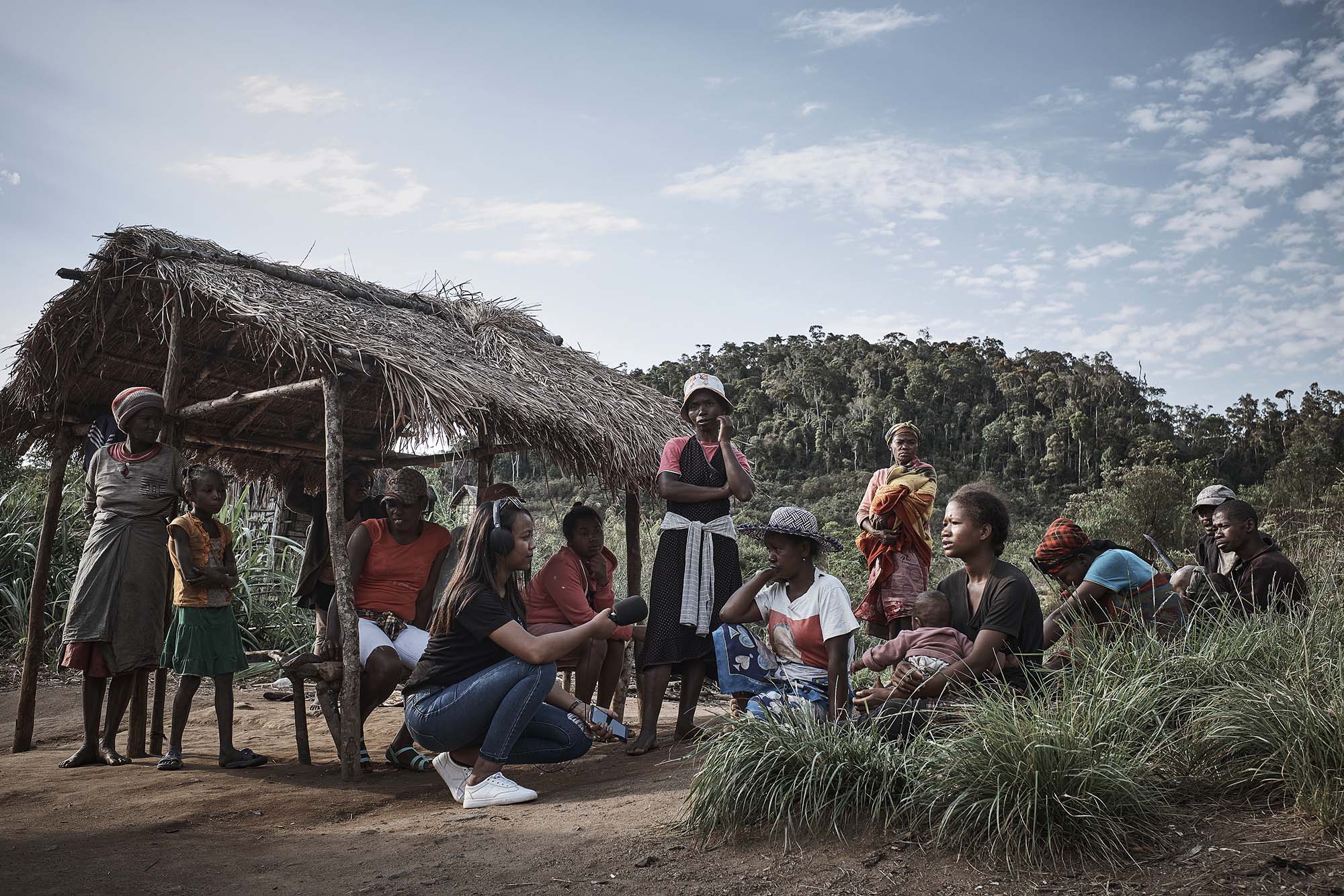
Studio Sifaka is a Madagascar NGO founded on 19th June 2021. It was initiated by the partners of the “Studio Sifaka: Finding Paths to Peace through the Voices of Youth” project who wished to pursue the activities begun in 2019 with Fondation Hirondelle and UNDP Madagascar, supported by funding from the UN Peacebuilding Fund (PBF).
Under the terms of its partnership with Fondation Hirondelle, Studio Sifaka’s mission is to help improve access for Madagascar’s youth to information on employment, education and training, health, the environment, and privatesector and civil-society initiatives for entrepreneurship and innovation.
To this end, the 2-hour daily radio programme offers a national and regional news segment as well as topical reports and programmes, discussion and music. The only show of its kind in Madagascar, the programme is broadcast by a national network of 55 partner radio stations located throughout the Big Island.
Key Figures 2024
732 hours of broadcasting
292 media professionals trained
55 partner radio stations
94,000 social media followers
Financial Volume 2024
262,558 CHF
Sources of Funding
• Switzerland (SDC Core Contribution)
• FEDEVACO
• Fondation Baur
• European Union
• Fondation d’Aide à l’Enfance et au Tiers-Monde
• Fondation Däster Schild Stiftung
• Fondation Madeleine
INFORMING MADAGASCAR’S YOUTH TO STRENGTHEN CIVIC RIGHTS
In 2024, Madagascar experienced unprecedented water shortages and cuts to electricity. The blackouts caused water network pumps to fail, forcing people to fall back on unsafe water sources in many neighbourhoods in Antananarivo. In addition, the country experienced a period of political and social unrest when the governing party lost its parliamentary majority during the general election in May. Municipal elections at the end of the year revived political divisions at the local level. In this troubled climate, it became more difficult to access reliable information. These factors affirmed the importance and relevance of Studio Sifaka for the country’s young people.
In 2024, Studio Sifaka strengthened its commitment to providing news and raising awareness in Madagascar. An internal evaluation led to improvements in the organisation and editorial strategy. The Santé NaKa project, funded by FEDEVACO, made it possible to produce 192 programmes on various health topics alongside workshops and media training for professionals working in the sector. Meetings between journalists and civil society actors provided opportunities to discuss subjects including mental health and the fight against HIV/AIDS. At the same time, Studio Sifaka began to work towards Journalism Trust Initiative certification, a standard that recognises media professionalism.
Taking part in this training is a major advantage for me. Before, I didn’t have the courage to lead a debate. I’m going to use all of the knowledge I’ve acquired. Now I feel that I’m brave enough to lead this type of debate.
Hélène, journalist at a Studio Sifaka training session in Fianarantsoa
The Liberté d’Expression à Madagascar project set up in partnership with Internews enabled the production of programmes and debates on topics including governance and health. UNICEF Young Reporters Clubs were created, and their productions were broadcast widely. Lastly, UNESCO’s Safety of Women Journalists programme made it possible to run training and awareness-raising sessions on preventing gender-based violence.
Studio Sifaka’s broadcast partner network grew in 2024 from 50 to 55 radio stations, making it possible to cover all 24 regions and reach 63% of Madagascar’s 16.8 million residents. Through a partnership with the social enterprise Viamo, the editorial team made a portion of the station’s content accessible through a toll-free number that could be called from anywhere in the country.
A study published in early 2024 revealed strong civic engagement among Studio Sifaka’s audience, with a particular focus on political and community issues. Listening to the Débat des Jeunes programme encouraged participation in political discussions and local meetings and favoured an understanding of electoral processes. Respondents highlighted the positive influence of programmes on subjects such as employability, training and making group decisions.


